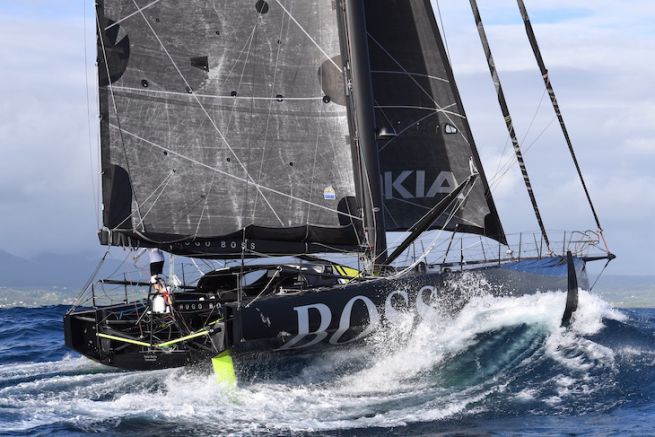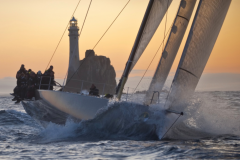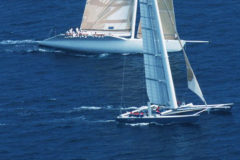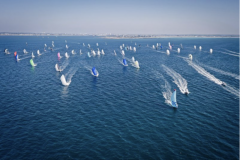For the IMOCAs, as for the Ultimates, the outcome of this 40 e edition of the Route du Rhum offered an improbable scenario. Alex Thomson, who has been at the top of the fleet since the start of the race and to whom victory seemed promised, was finally downgraded to third place. This decision was taken by the international jury following the start of its engine to extract itself from the cliffs where it had run aground. Indeed a few miles from the finish, exhausted from fatigue, he fell asleep to wake up trapped in rocks along the Guadeloupe cliffs.
As we could see from the beginning of the race, he is not the only one to have used his engine. Indeed, to avoid the very big depression or to overcome the technical problems of many competitors, all classes combined, started their engines to reach a port or a shelter and none of them were penalized.
So why penalize Alex Thomson?? Why take away this victory so hard won during this magnificent race of mastery and engagement?? Is there an injustice, 2 weights 2 mesure?? Let us step back and try to discern without partisan emotion the reasons for this decision of the international jury.
Racing rules
During a sailing race, the use of the engine to propel oneself is obviously prohibited. However, its use is allowed if it is a question of producing electricity to cover the boat's energy needs.
So to avoid cheating, the transmissions, namely a propeller shaft or sail-drive, are equipped with a lead which will allow during a check to verify that they have not been used.
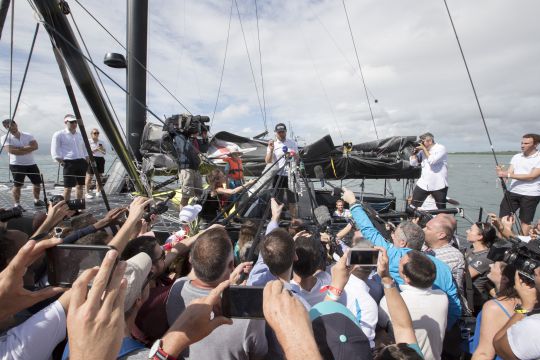
The special case of technical stopovers
However, the sailing instructions provide for certain cases where the use of the engine is authorised, for example assistance to a boat in danger or a technical stopover. A declaratory procedure is provided for this purpose in the sailing instructions.
In other words, it is announced to the race management upstream by the skipper preparing to make a technical stopover. And he is assigned a code to prove that he did not deplumb his engine prematurely. If within 150 miles after departure, the number of stops is unlimited and not penalised, a technical stopover is subsequently authorised and penalised by 4 hours.
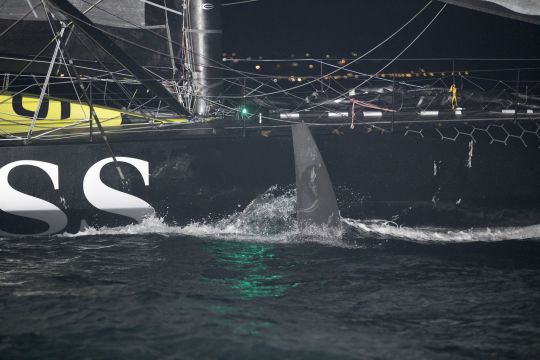
The Thomson case
In Alex Thomson's case, it was absolutely not a technical stopover, but a safeguard measure for him and his boat. As a good sailor, he got out of this situation alone by using his engine after lowering the sails.
When he started his engine, he removed the seals from his propulsion. Alex Thomson knew what he was getting into, knowing perfectly well the race instructions and the consequences of his decision. The only question was what penalty would be applied by the international jury.
The latter thus penalized him by 24 hours, Alex Thomson considering that at no time did he try to cheat by using his engine, however his use a few miles from the finish could not remain without consequence.
Thus, the jury applied the minimum penalty, as they considered that a disqualification would be grossly exaggerated in the circumstances.
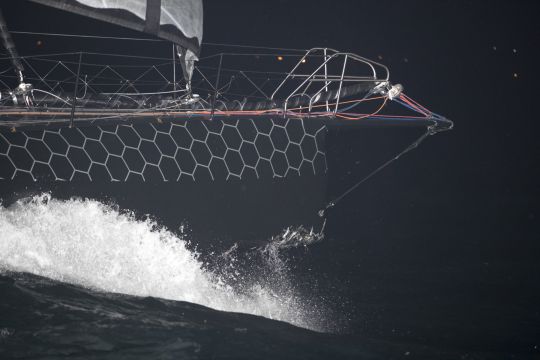
In conclusion
If Alex Thomson is the first IMOCA to cross the finish line, his penalty takes him back to 3rd place in the ranking, giving Paul Meilhat a well-deserved victory, especially as he was one of the few IMOCA without foils.
So congratulations to Paul, Alex, and all the competitors who give their best by participating in a game where they know all the rules.
